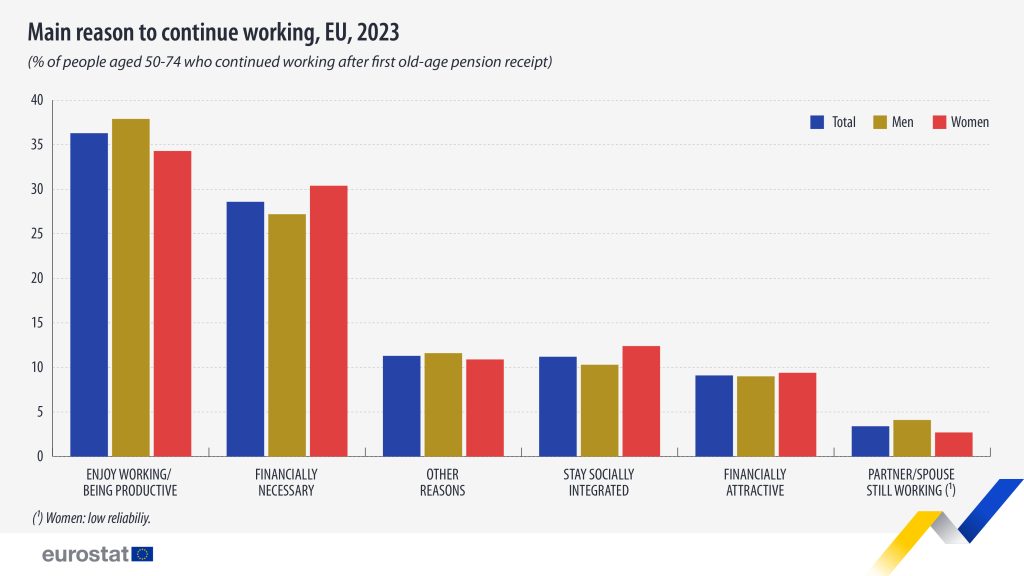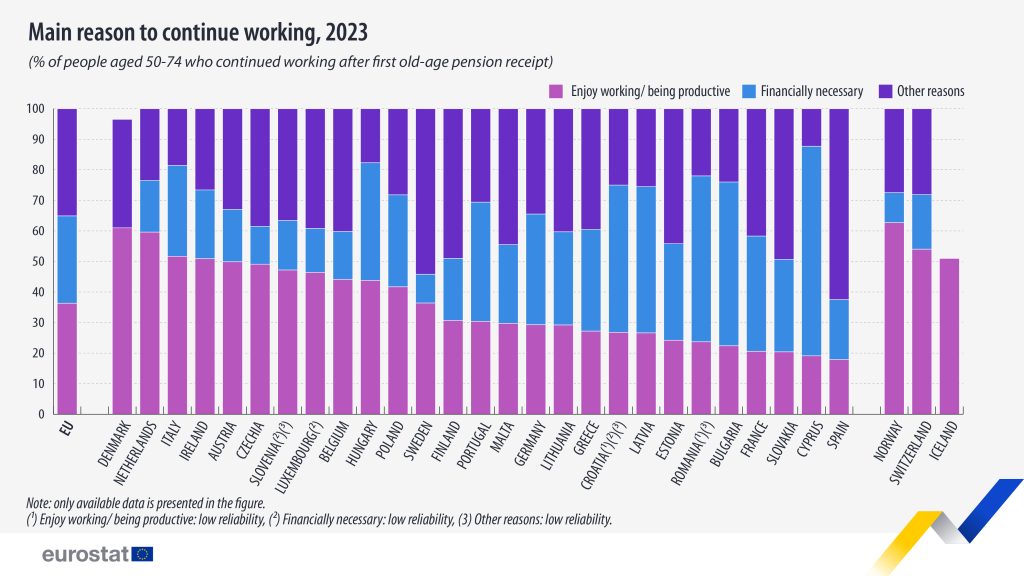According to EU-LFS data from 2023, most people did not work (22.4%) or stopped working (64.7%) in the EU within 6 months of receiving their first old age pension. 13% of European pensioners continued to work.
The highest proportion of people who continued to work was recorded in the Baltic States: Estonia (54.9%), Latvia (44.2%) and Lithuania (43.7%), and the lowest in Romania (1.7%), Greece (4.2%) and Spain (4.9%).
The main reasons why people continued to work after receiving an old-age pension were that they enjoyed working and being productive (36.3 per cent of people) or financial necessity (28.6 per cent).

The desire to maintain social integration (11.2%) and the financial attractiveness of the job (9.1%) were also cited as reasons for continuing to work. A smaller proportion, 3.5%, continued working because their partner was still employed.
Denmark (61.0 per cent), the Netherlands (59.6 per cent) and Italy (51.7 per cent) had the highest proportions of people who continued working because they enjoyed it. In contrast, the smallest proportions of people who gave this reason were in Spain (17.9%), Cyprus (19.1%) and Slovakia (20.4%).
On the other hand, financial necessity was the main reason for continuing to work in Cyprus (68.6%), Romania (54.3%) and Bulgaria (53.6%), while Sweden (9.4%), Czech Republic (12.4%) and Luxembourg (14.4%) recorded the lowest proportion.












